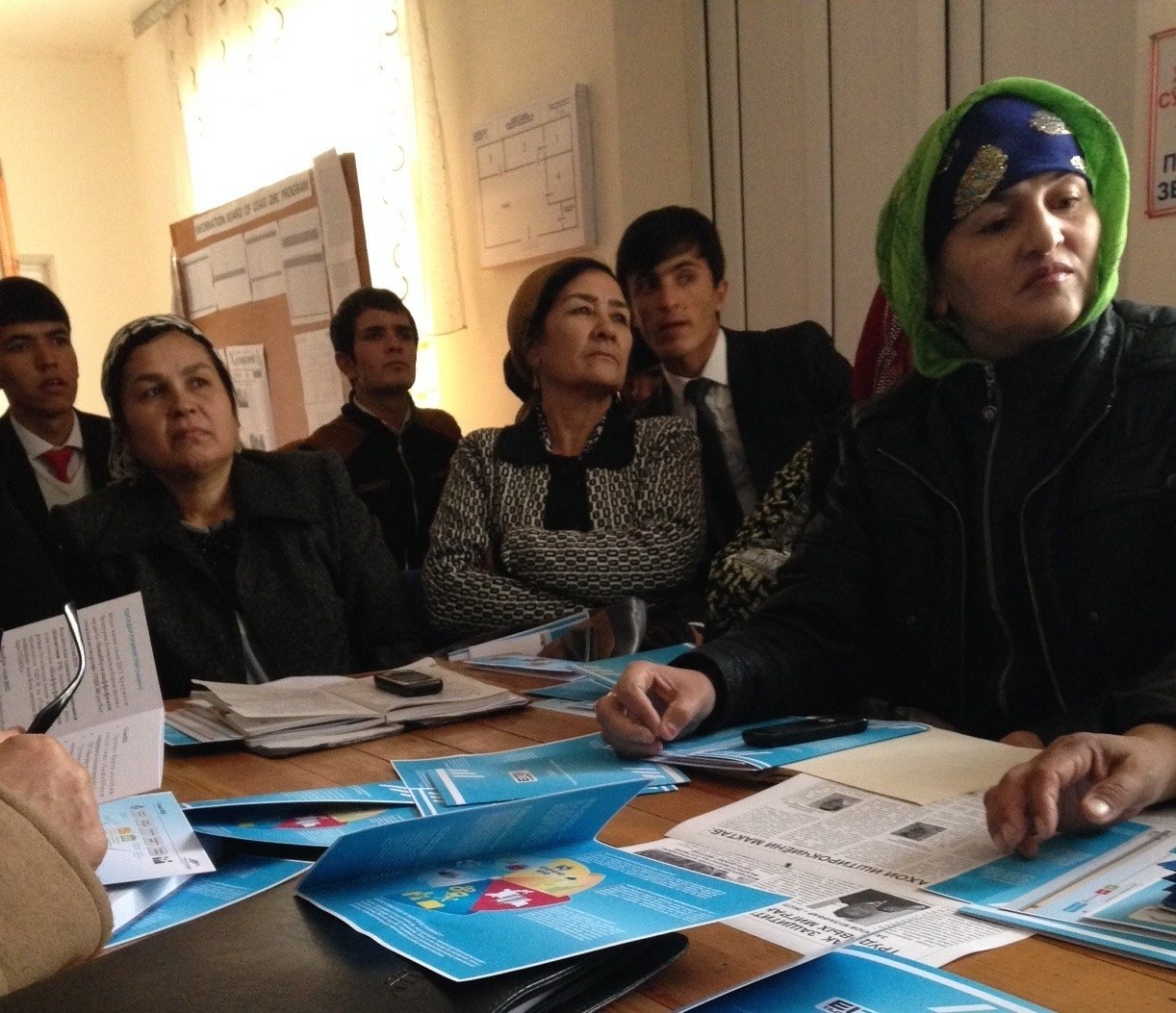The role of women in Central Asia has never been an easy one as they have had to take care of husbands, raise children and manage a household; many of them have had to do this while also living in poverty and being subject to society’s strict gender rules.
Today, on top of this, women are striving to become leaders and decision makers at the local and national level. Indeed, in Tajikistan civil society mostly consists of women and women take on more responsibilities in their local communities. This is a result not only of the strong will and endurance of the eastern women, but also due to the very high level of men’s migration. According to interviews with women activists over 20% of men in Tajikistan have emigrated for labor purposes and in remote regions this number reaches 50%. Women are often at the forefront of the campaign to protect Tajikistani communities from the effects of mining and ensuring that citizens see some benefit. This is a crucial task in a country where 80% of citizens live below the poverty line.
“Our mission is to create conditions for the development of women and their rights, to involve women in the decision-making process at all levels: family, community and country”, says Zanonimar Sharipovaa trainer-facilitator with 22 years of experience as a school principal. Her lifelong mission is to teach and provide support to women and children, “I am inspired by the opportunity to contribute to the development of today’s society”.
“We started our NGO Zanu ni shark in 1995 in Panjakent, Tajikistan. It was hard at first, we struggled for funding but eventually succeeded, it helped that we had a catchy name – Women of the East! (Zanu ni shark)”, remembers Zanonimar.
Panjakent is a city in Sughd Province which is rich with gold and other ores of nonferrous and precious metals. “The Chinese-Tajik golden mine extracts gold of the highest quality. The Chinese export 75% of gold and 25% remains in Tajikistan. We don’t know how much the company pays to the government”, explains Zanomimar. “Moreover, we don’t know what’s inside the contract – how much does the company extract, how much money does it pay? For example, the company holds a license for gold but while extracting the gold it can find an uranium ore and extract uranium illegally. And this remains hidden from the government because we don’t know what are our natural resources! That is why transparency at all levels is crucial both for citizens and the state.”
Local communities in Sughd Province are concerned with the deterioration of the environment in recent years. The main cause of pollution is believed to be irresponsible mining with use of cyanide. The infrastructure in the region is neglected and social conditions are very poor.
“I think the companies need to take more responsibility over the region where they extract precious minerals and listen to the voices of communities. We also need to know how much money the state receives from the mining in our region and how does it use them? I hope that EITI can help to find these answers”, explained Zanonimar. “But I think that Publish What You Pay has good approaches. Those examples from other coalitions that I’ve heard inspired me and gave me hope that we can do the same. We can initiate a model agreement between companies and communities, we can start asking questions and demanding transparency and accountability”.
Zanonimar thinks that more active involvement by women in issues like mining is very important for Tajikistan. Women still lack education and understanding of human rights, therefore training of women on transparency in natural resources is essential. “I believe in our women. They are enduring, flexible and diplomatic. This is all they need to extract right information. That is why I admire our Tajik women, their potential and bright ideas.”











